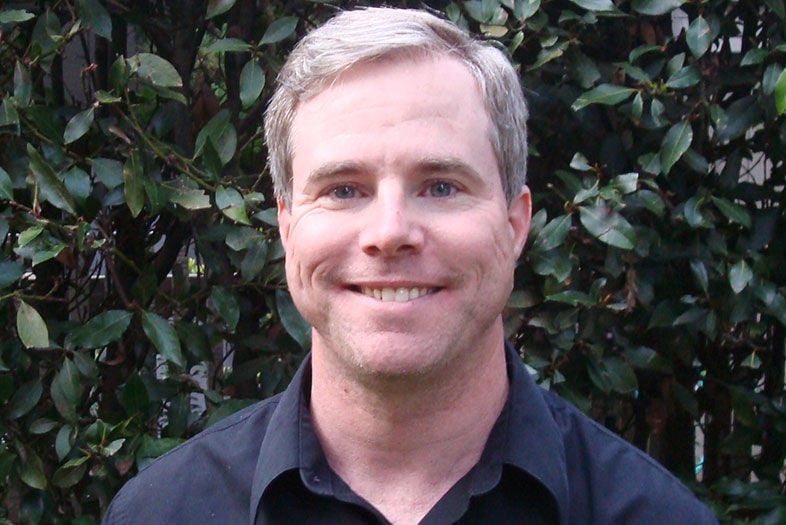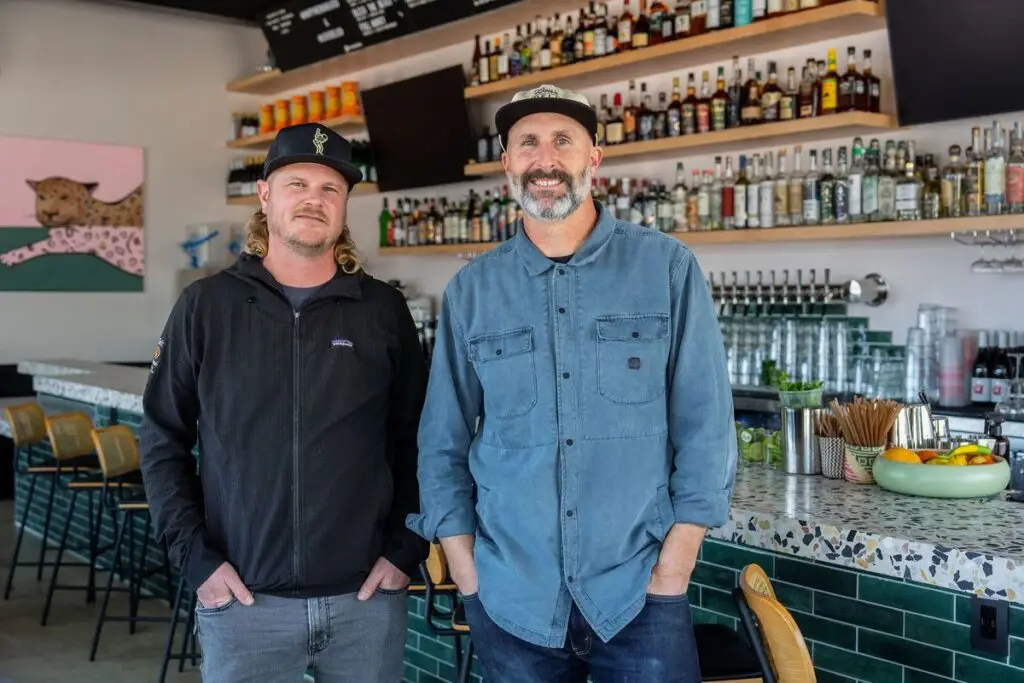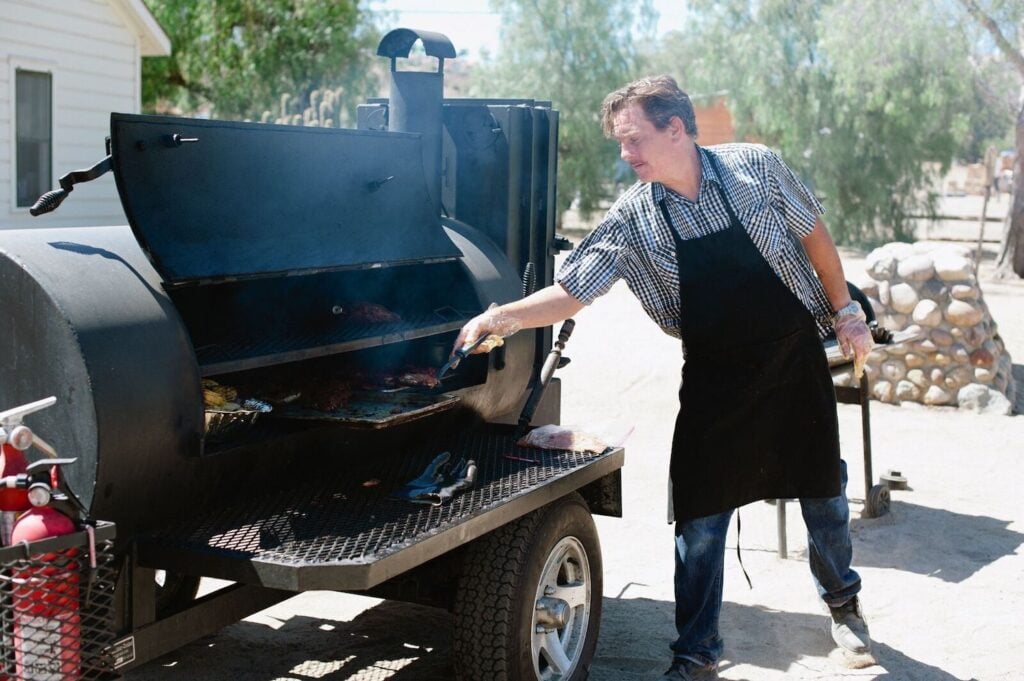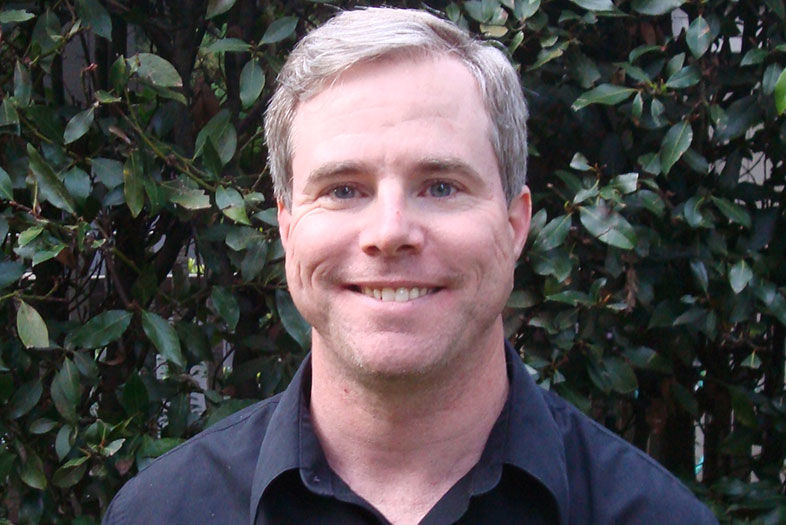Welcome back to San Diego! You studied at UCSD and now you’re here for Comic-Con, right?
Yeah! I’ve been back to San Diego many times to visit friends, but it’s almost an entirely different experience being at Comic-Con now than it was as a broke, starving college student.
It must be surreal sitting on the other side of the table.
Oh, a little bit. I’ve kind of gotten used to it.
What’s your fanbase like?
They’re awesome. Nerds are my people, because I am one. They’re always excited to talk about the science, and I answer all my fan mail.
You were already well known as a web comic artist before you made it big as an author. Are you ever tempted to jump back into cartooning?
No, I’m an appallingly bad artist. [Laughs] I mean, I had fun making the comics, but I’ve moved on. Although Cheshire Crossing is being redrawn by Sarah Andersen, of Sarah’s Scribbles, for Tapas Media.
No way! She’s great!
Yeah, she is!
What seems to have made The Martian such a big success was its combination of hard science fiction puzzle-solving with the narrator’s sardonic gallows humor. How much of that are you carrying over into your new book, Artemis?
Well, this one is a crime novel set on the moon, and the main character, Jazz, is a criminal who’s trying to make a big score. There are still scientific issues that need solutions, and a snarky first-person narrator. But it’s a heist and a mystery, as opposed to a straight-up survival story. So they’re definitely different, but it has the same adherence to scientific accuracy. In a lot of ways it’s even more accurate, because in The Martian I had to extend some technologies considerably further along than they are today, but in Artemis, all the tech they use is pretty much available now.
Do you have any more direct lines for fact-checking now that you didn’t have before? I don’t imagine you still do your research on Google, as you did with The Martian?
I still do, actually! There are a lot of people I know now whom I can talk to if I have questions, but if anything, my fact-checking pool has gone down, because I originally posted The Martian a chapter at a time on my website and had about 3,000 regular readers. So if I got something wrong, the experts out there would let me know. But with Artemis, I couldn’t do that. It was a straight-up book deal with Penguin Random House, and they don’t like it when you post your book for free. [Laughs] So I kind of had to do all the research on my own.
You also have another book in the works that you’ve sidelined for now; a less-realistic one with aliens and faster-than-light travel, correct?
Yeah, that’s called Zhek. I put it in the fridge because I got about 70,000 words in and thought, “This just isn’t good. It’s not fun to read; it’s not compelling.” It was a really hard decision, but I just didn’t feel like it was a good follow-up. It was departing from my strengths of scientifically accurate fiction. So I cleared it with my publisher and decided to write this other idea that had been going in my head for quite a while.
Fox has already bought the film rights for Artemis—had there been studio pressure to make another book that was more like The Martian?
There wasn’t. They said, “We know you’re working on another book, do you want to talk about the film rights?” And I said, “Let’s talk about that when I’m done with it.” I didn’t want to be contractually bound to finish a book, because I’d already scrapped Zhek earlier. Artemis felt like a good idea, but would I still feel that way when I was 70,000 words in? I didn’t know. It wasn’t until I’d finished that we said we were interested in hearing offers on the film rights, and Fox bought it, like, that day.
Your whole story, going from your blog, to self-publishing on Kindle, to having your book bought by one of the Big Five, is one of the great publishing success stories of the last few years—
Yeah, I wish I knew what I did right! [Laughs]
Do you have any advice for up-and-coming authors who are jaded with the traditional “gatekeepers” structure?
I would not exist as a writer were it not for the ability to self-publish. I’d written other books that I couldn’t get any traction on, and had given up the idea of ever being published, which is why I started posting to my website. It’s the best time in history to self-publish, because it doesn’t cost you any money. It’s hard, right? Because you’re in there with, like, 100,000 other self-published books. But all it takes is a few people to go “Hey, this is pretty good” and recommend it to their friends. If you get 20 or 30 decent reviews you immediately stand out above 90 percent of the competition. As for The Martian, I was very surprised that people liked it so much. I really thought I was writing it for a small, niche audience of hardcore science dorks and didn’t think it would interest anyone else.
They’ve been predicting we would make it to Mars “in the next fifteen years” ever since I was a kid. What’s our best bet at this point? SpaceX? Will NASA’s Orion project ever get off the ground?
I’ve got my money on 2050 or thereabouts. I think the commercial spaceflight industry needs to grow, which will drive the price to low-Earth-orbit down, and eventually it’ll be low enough that a big government agency like NASA, the ESA [European Space Agency], or CNSA [China National Space Administration] could have a proper Mars mission. I don’t believe the first humans to set foot on Mars will be a private venture. More likely it’ll be multiple space agencies all working together, like the International Space Station. Competition in the industry is what’s really going to make it happen. NASA also needs significant internal changes. They have to get completely out of the business of making boosters; right now they’re working on the Space Launch System, which I think is a big waste of money.
Because SpaceX is doing fantastic work with boosters, right? They achieved vertical landing, which I never thought I’d see in my lifetime.
Yeah! They’ve also successfully reused a booster. Launched it, landed it, and used that same booster again. I don’t know how much it costs them, though. What really matters is if they can find a way to make it economical.
Have you been able to tour SpaceX?
Oh sure, yeah, it’s awesome. I’ve been to NASA and I’ve been to SpaceX: NASA is like absentminded professors and mad scientists, research and labs and all—SpaceX is a rocket factory. You go there and every single part of it is dedicated to some specific aspect of making a booster. “This is where we make the carbon-fiber hulls; this is where we make the domes.” It’s a factory floor.
Would you buy a ticket to Mars?
No, not at all. I would never go into space, even. I’m an earthbound misfit. I write about brave people; I’m not one of them.
Last question: What’s your favorite Arthur C. Clarke story?
Rendezvous with Rama. I didn’t like the sequels, but the first one was pretty cool.
We never saw the aliens, but we slowly uncovered what their society must have been like, through their ship.
Yeah. A scientific mystery, scientifically realistic, and I like how it turned out to have nothing to do with us. [Laughs] Like, it was concerned with figuring out how to do a slingshot and refueling maneuver off of the sun, and otherwise didn’t give a crap about Earth.
See Andy in person!
July 24, 2017, 7–9:30 p.m.
Fleet Science Center, Balboa Park

Andy Weir: “I’m an Earthbound Misfit”
Author Andy Weir will be appearing at the Fleet Science Center on Monday, July 24. | Photo: John Weir


















